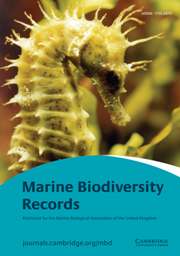Crossref Citations
This article has been cited by the following publications. This list is generated based on data provided by Crossref.
Apriansyah
Atmadipoera, Agus Saleh
Nugroho, Dwiyoga
Priyono, Bayu
and
Risko
2025.
How does the Natuna Cyclonic Eddy form in the Southern South China Sea, and what are its implications?.
Regional Studies in Marine Science,
Vol. 85,
Issue. ,
p.
104154.

